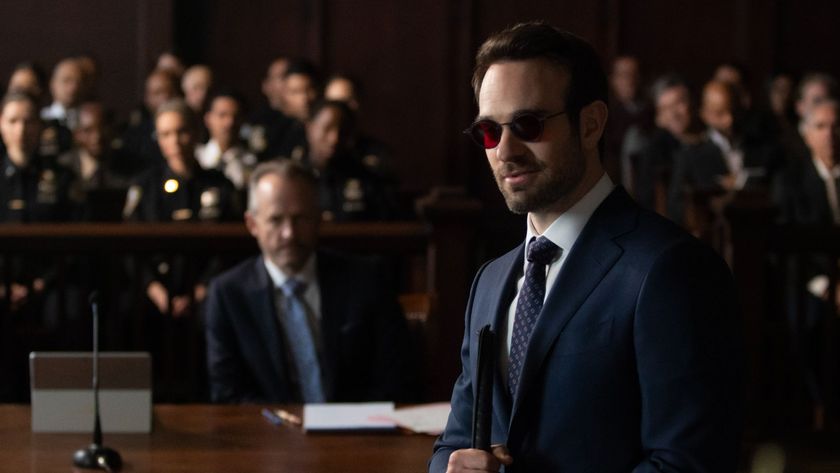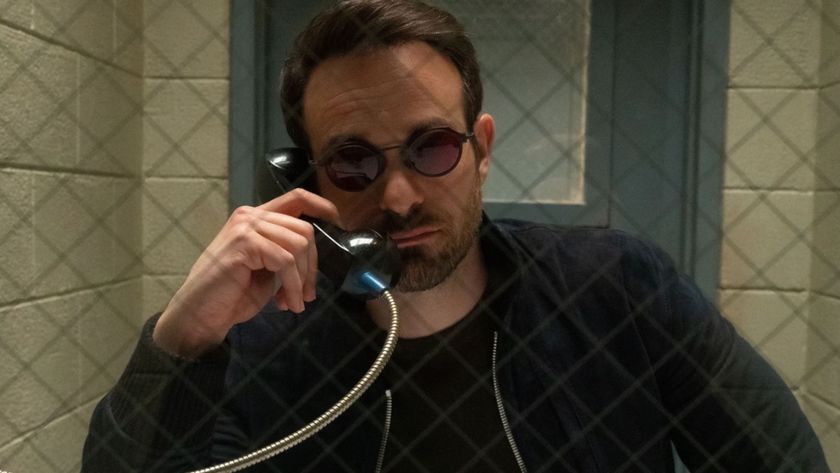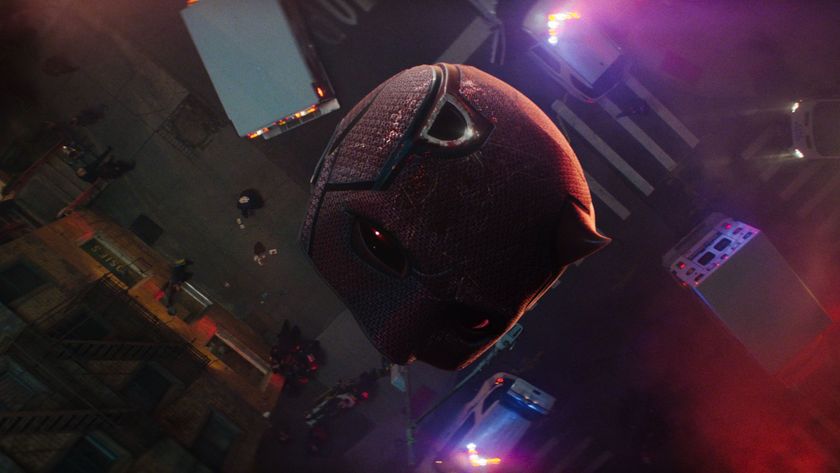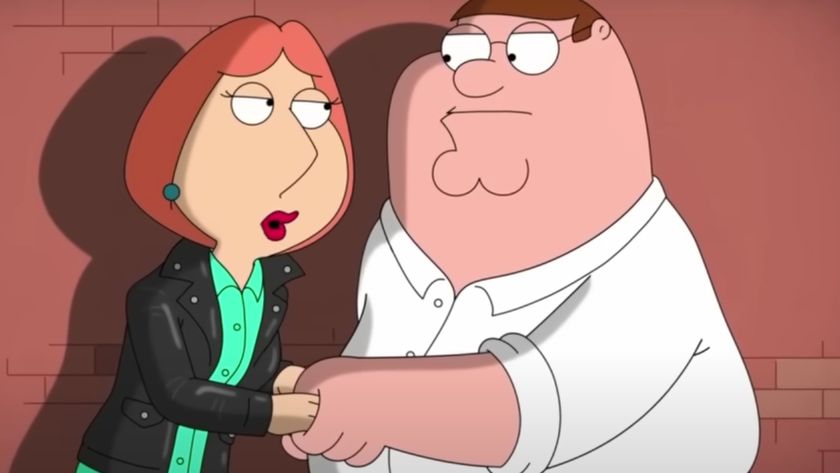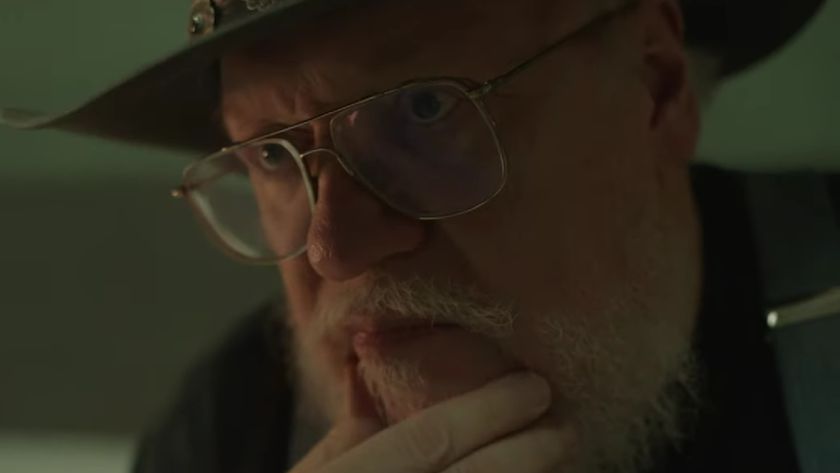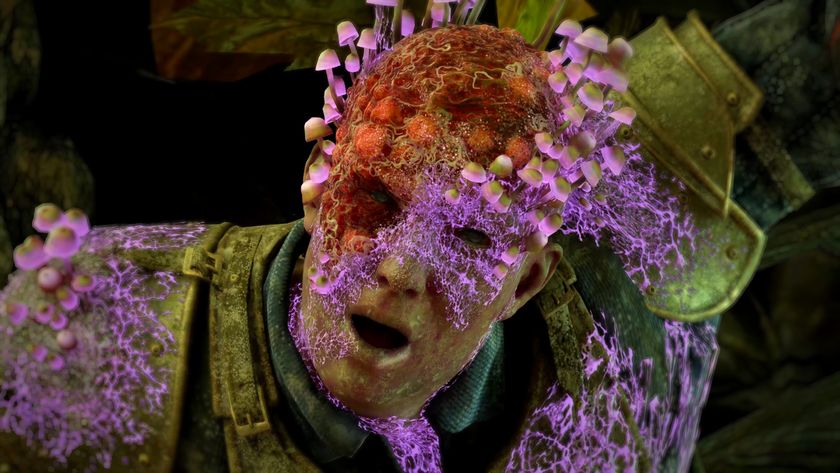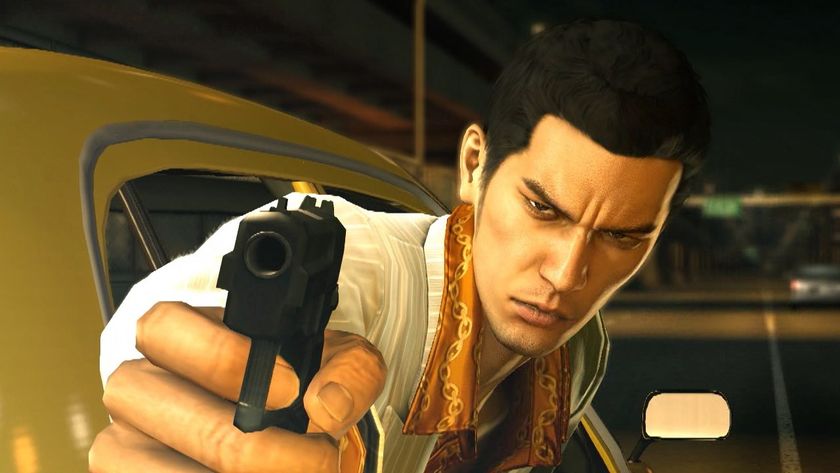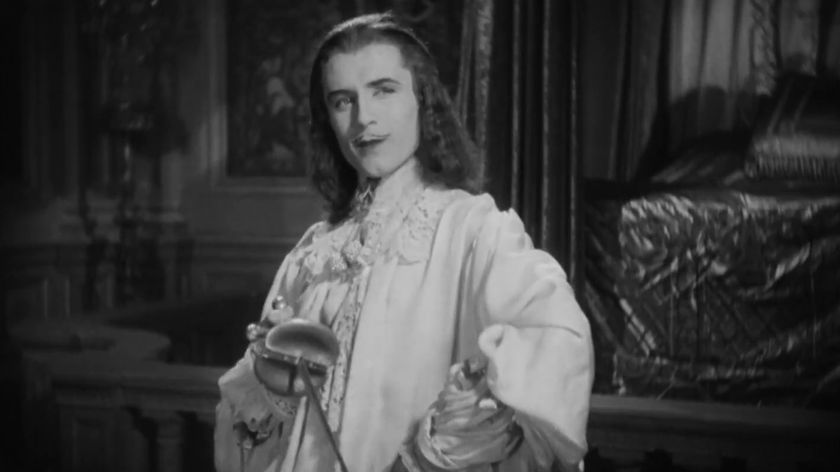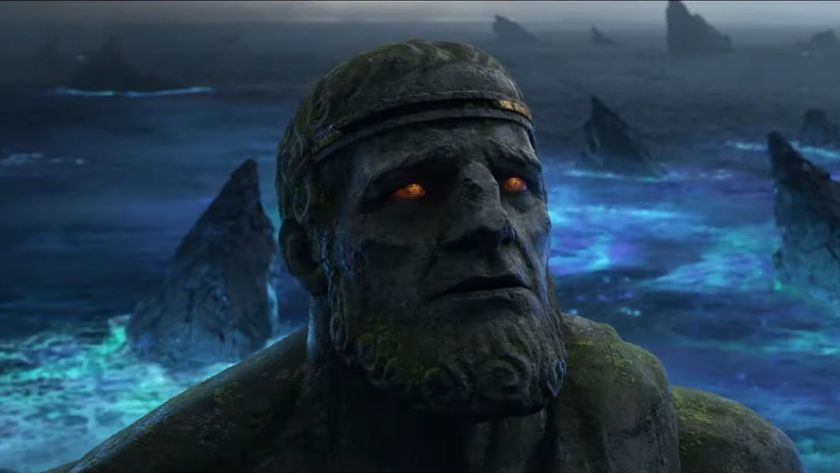Having been saved by the fans, Futurama is back (hurrah!) in the form of a series of movie-length, original DVD releases. “Bender’s Big Score” was released this year, immediately becoming a critical and sales success, and the second DVD, “The Beast With A Billion Backs” is due out on 30 June. This time round, Bender, Fry and co have to deal with a monster from an alternate universe in an epic story which combines SF, religious cults, robot secret societies and the end of civilisation as we know it… as well as a sport called Death Ball.
SFX spoke to producer David X Cohen about Futurama’s transition from TV to DVD.
Has it been difficult acclimatising to movie-length Futuramas after 72 half-hour episodes?
“Yeah, there was definitely kind of a learning curve with the move from 22 minutes to 80, 90 minutes. The transition was interesting because when we did our 22-minute shows we would always be trying to cram a movie plot into the 22 minutes, so we would end up cutting all kinds of stuff and having to rewrite the scripts because they were too complicated, or too long. In that respect it was very nice to shift to a longer format.
“At the same time, it’s a fast-paced show and it’s kinda hard to keep up that energy for over an hour. So it definitely took some work and I think each DVD gets a little better as a result of us learning how to do that. There was some loosening, then tightening, then getting some stomach surgery… Even with the longer format we started with a story that could have been a series of five movies. Once we thought we had more time to work with… put it this way – we had four times as much time to play with, and we picked six times as much material. Hopefully we’re zeroing in on the correct ratio now.”
So what mistakes did you learn from with the first one, “Bender’s Big Score”?
“The first one was very ambitious – it was a time travel story – and we only did time travel a couple of times in the history of the series because it’s so complicated and there are all these logic holes you need to fill and so on. So, it was very ambitious and it requires a lot of concentration to watch the first movie. I think if you do watch very carefully and you go back and check things you are rewarded. But at the same time it’s a little tiring keeping up that level of focus for the long format. So, I think we learned to make the experience a little more relaxing for the viewer. I think the fans will find the second one a little more relaxing to watch and the story’s simpler, which I think allows you to do a little more with the comedy. I think you can just sit back and have a bear or a soda – depending on your age – and enjoy the second one a little more as a recreational activity.”
Sign up to the SFX Newsletter
Get sneak previews, exclusive competitions and details of special events each month!
Having said that, the central plot of “Beast With A Billion Backs” is actually pretty hard-core SF at heart…
“That’s a lesson we learned a while ago. That’s something that we’ve taken to heart from our old days. We discovered that the show actually works better – and the comedy even works better – the more we take the science fiction seriously. That was something that at first wasn’t clear to us – Matt Groening and myself – when we were developing the show. We weren’t sure if the fans were going to be into this for the science fiction angle or the comedy angle. So we were a little hesitant to do epic sci fi stuff. But each time we did one we got a really good response from the fans. So I think the lesson was, we can pick some real genuine sci-fi scenario, and as long as we have our characters take it seriously, people will buy into it, even though it’s a crazy cartoon. So, making it a big space opera works for us, and having the situation be grander, bigger than life, but also the emotions – the characters are having grand romances – it kind of goes hand in hand with the epic setting.”
“Beast” includes a new sport – Deathball – which is a giant-sized version of those games where you try to get a ball through a maze by tipping it from side to side. Where did that idea come from?
“I would like to say that it came from us playing the tabletop version of the game, because we do have it lying around the office – but we bought it after writing it into the script. The inspiration was totally backwards. The show inspired us to get the game. But I think it’s one of those fond memories from childhood, and when we were talking about it, every single person had the same reaction – ‘Oh I remember that, even though I haven’t seen it in 20, 30 years.’ Everybody seems to be familiar with it though nobody seems to have it any more. We just made it 100 times larger.”
And, is it our imagination, or is the humour a little more gross in the DVD movies?
[Laughs evilly] “There’s definitely an aspect of that. The two-word answer is ‘No Censor’. When we were on the Fox broadcast network, we had the network’s broadcast standards department – or the censor as it was colloquially known – who was a person who would look over the script and decide what was fit to broadcast. These new ones are being release – initially at least – on DVD, so there’s literally nobody in that capacity. It’s pretty much up to us to set the level of grossness, or adult humour. Obviously we’re trying not to stray tremendously far from the tone of the original series but I think we have purposely poked the boundary a few times… I don’t think there’s any one thing that we couldn’t have done before, but there might be a little bit more in overall quantity. Maybe.”
The next movie’s called “Bender’s Big Game” – that’s a bit of hard-core sci-fi buff pun, isn’t it?
“That’s obviously a reference for the real sci-fi fans. And hopefully one that, if you don’t get it, makes no difference. But Orson Scott Card’s Ender’s Game is one of my favourite books. We used to have index cards up on the wall in the old office with various ideas for stories and jokes on them… and possible titles for episodes. And that card was sitting up on the wall for years. Literally years. We never had the right episode to use it. And then we had this third DVD coming up which involves fantasy role-playing games, and Bender is instrumental in it, so suddenly we went, ‘A-ha! That card was not for nought!’ We’re going to put that card into heavy use after all these years.”
David X Cohen talks more about “Bender’s Game” in issue 172 of SFX, on sale 2 July.
SFX Magazine is the world's number one sci-fi, fantasy, and horror magazine published by Future PLC. Established in 1995, SFX Magazine prides itself on writing for its fans, welcoming geeks, collectors, and aficionados into its readership for over 25 years. Covering films, TV shows, books, comics, games, merch, and more, SFX Magazine is published every month. If you love it, chances are we do too and you'll find it in SFX.
